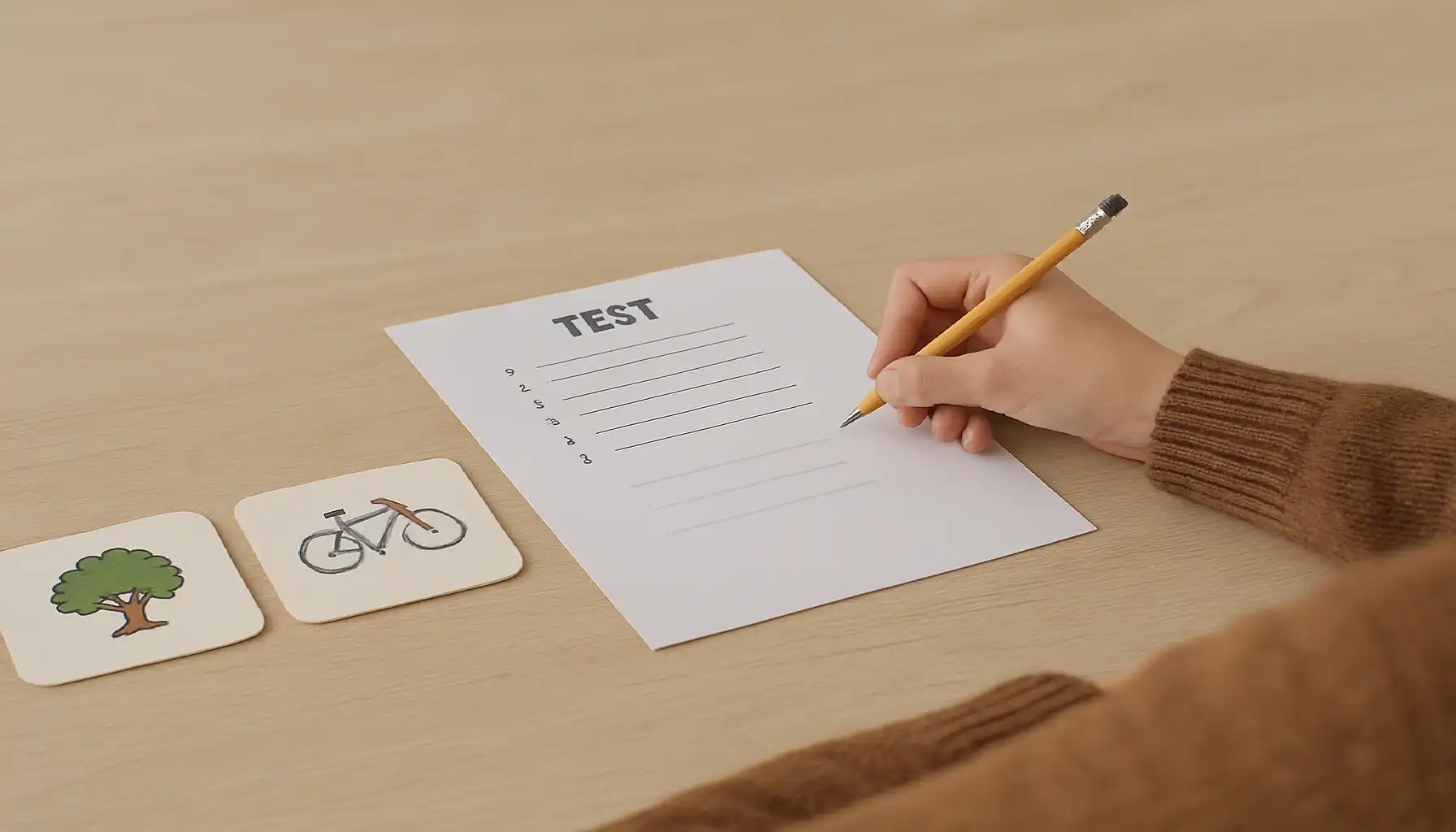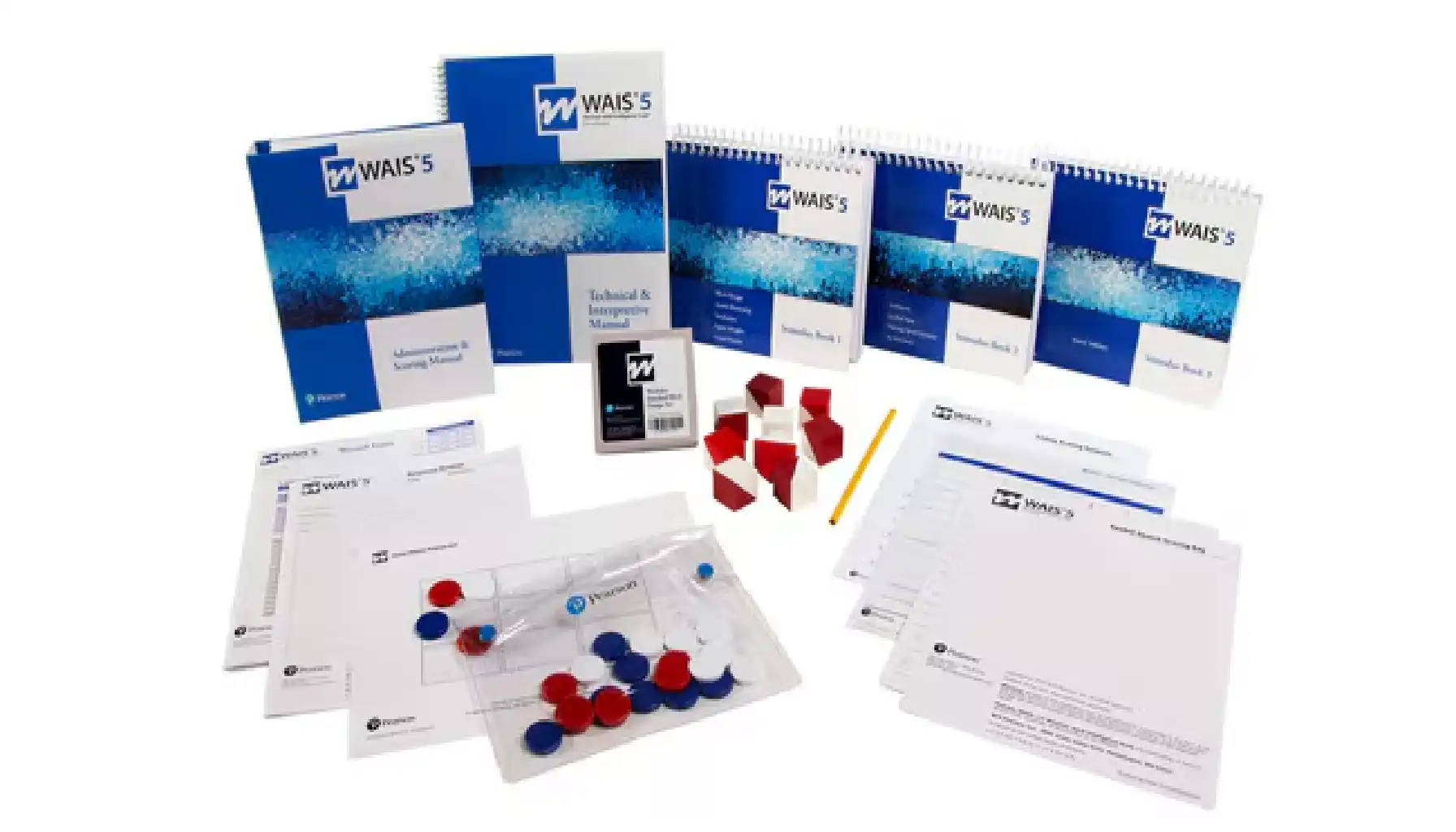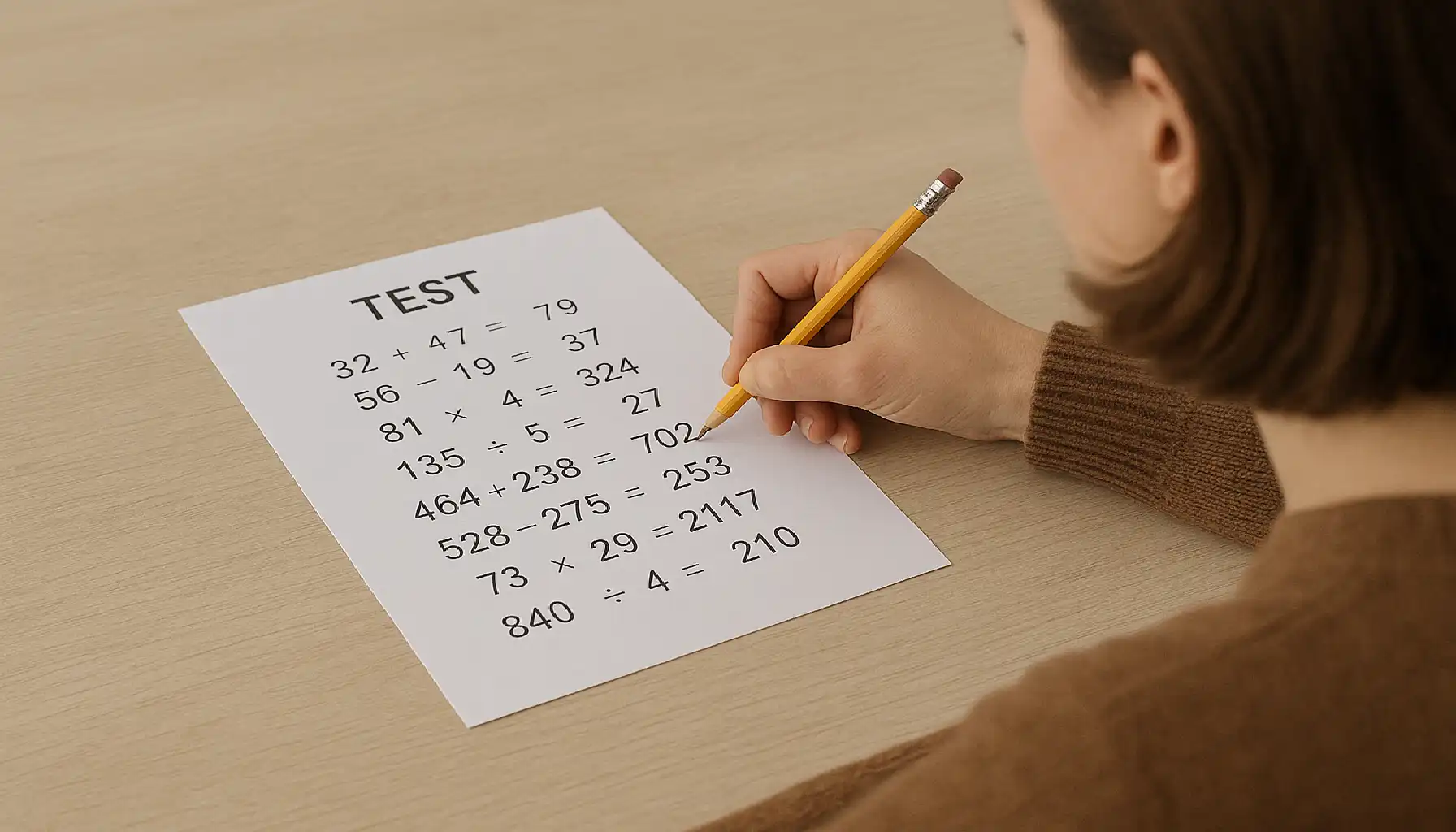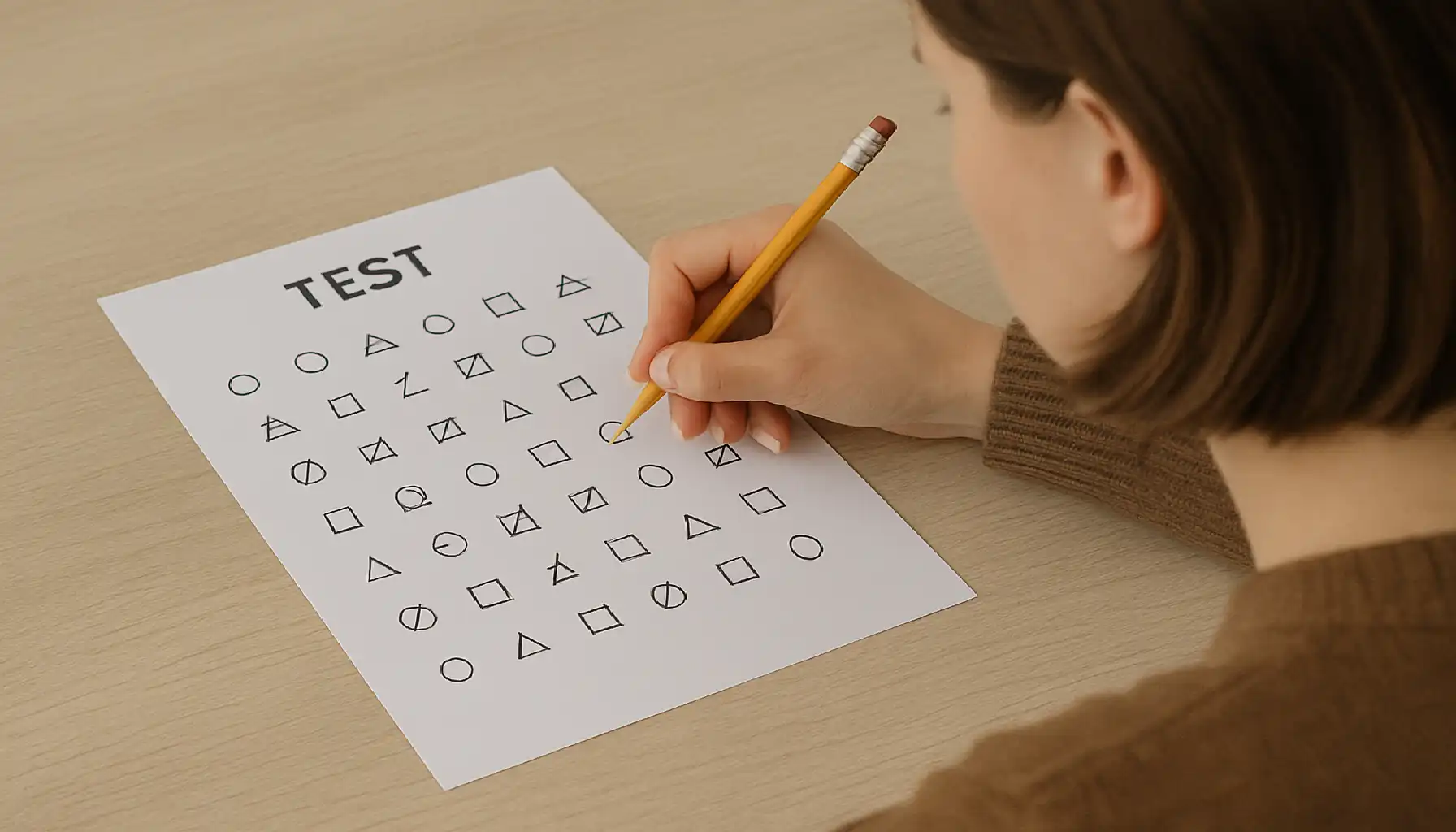What Is the Wechsler Adult Intelligence Scale (WAIS)?

Contents:
We, people, are a competitive and inquisitive species. These qualities lead us to making ways to assess our intelligence.
The Wechsler Adult Intelligence Scale is one of many intelligence evaluators. How does the measuring happen, and where can you have this test? In today’s article.
Do you want to become smarter? These games for the brain will improve your memory and logical thinking.
What Is WAIS?
David Wechsler, chief psychologist, developed the Wechsler Adult Intelligence Scale (WAIS). He published it in 1955. Since then, the scale has gone through many changes. The current version is WAIS-V, released in 2024.

The previous version, Wechsler Adult Intelligence Scale-IV, is still widely used. Often in tandem with its V-edition.
Children can't take the WAIS. Children between the ages of 6 and 16 may take the Wechsler Intelligence Scale for Children (WISC).
WAIS Evolution
The Wechsler Adult Intelligence Scale test is constantly developing. The creator of the scale (and the test that is measured by the scale) thought that various elements make up our intellect. Each version was developed to properly measure and isolate these elements.
Version | Release Year | Key Features & Changes | Primary Goals |
WAIS (Original) | 1955 | The first adult intelligence test by David Wechsler. Included verbal and performance subtests | To provide an adult-specific alternative to the Stanford-Binet test, a balanced assessment of verbal vs. non-verbal intellect |
WAIS-R | 1981 | Revised norms. Updated items. Removal of some outdated subtests. 6 verbal + 5 non-verbal subtests | To use WAIS’ original data but bring new norms; improve standardization and relevance; bring better age norms |
WAIS-III | 1997 | Added secondary indices: Verbal Comprehension, Perceptual Organization, Working Memory, Processing Speed | To isolate more scaling indexes and make the scale more comprehensive |
WAIS-IV | 2008 | Dropped IQ scores (Verbal IQ / Performance IQ). Instead, entirely replaced by 4 index scores: Verbal Comprehension, Perceptual Reasoning, Working Memory, Processing Speed, updated norms, and subtests | To standardize the test, reflect modern cognitive models, and emphasize memory tests |
WAIS-V (released but in development) | 2024 | Integrated more subjects. Widened Working Memory Index. The Full Scale Intelligence Quotient is now made up from only 7 subtests: Similarities, Block Design, Vocabulary, Figure Weights, Matrix Reasoning, Digit Span Sequencing, and Coding. Made the tests a bit shorter | To integrate recent research in cognitive neuroscience and the works of David Wechsler, improve accessibility and interpretability |
WAIS Scoring
So, how does it work? Wechsler Adult Intelligence Scale scoring works the following way:
You take the WAIS test (most likely given by a psychologist)
Your test results are scored according to the indices
Your score is put in the form of a WAIS Scale
Indices do the heavy lifting for your scores, as the result depends on how well you perform within these indices. Let’s have a better look at them.
The following indices are taken from the Wechsler Adult Intelligence Scale IV. The newer V-edition is a work in progress, so their scoring could soon change.
Also read: Stanford-Binet Intelligence Scales.
Verbal Comprehension
This index measures verbal reasoning and concept formation (how you analyze the surrounding culture and the environment).

Subtests:
Similarities: Abstract verbal reasoning
Vocabulary: Word knowledge and verbal concept formation
Information: General knowledge acquired from education and life experience
Comprehension (optional): Understanding of social norms and practical judgment
Perceptual Reasoning
This index measures how you understand visual information, analyze, and solve problems using nonverbal reasoning.

Subtests:
Block Design: Motor coordination, spatial visualization, and problem-solving
Matrix Reasoning: Abstract reasoning and pattern recognition
Visual Puzzles: Visual reasoning in space
Picture Completion (optional): The speed of visual perception
Figure Weights (optional): Quantitative reasoning
Working Memory
This index measures how you hold and manipulate information in your mind over short periods, focus attention, and perform mental arithmetic operations.

Subtests:
Digit Span: Short-term memory and attention
Arithmetic: Computation, working memory, and focus
Letter-Number Sequencing (optional): mental control and attention
Processing Speed
This index measures how quickly and accurately you can take in visual information and perform attention-based tasks.

Subtests:
Symbol Search: Processing speed (in rows of symbols)
Coding: Associative memory and memory speed
Cancellation (optional): Processing speed (in rows of geometric shapes)
You can find Wechsler Adult Intelligence Scale example questions for this and other indices on the official website, Pearson Clinical.
WAIS Scale Results
After passing the test, you get the result. Each index gives you a mean of 100 IQ points. These points are summarized across all indexes, and then you’re given the medium.
Description | Percentage of right answers | |
130 and above | Very Superior | 98-99.9% |
120-129 | Superior | 91-97% |
110-119 | High Average | 75-90% |
90-109 | Average | 25-73% |
80-89 | Low Average | 9-23% |
70-79 | Borderline | 2-8% |
69 and below | Mentally Retarded | 0-2% |
These scores on the Wechsler Adult Intelligence Scale are considered accurate, used medically in many countries.
WAIS Availability
Can you have a Wechsler Adult Intelligence Scale Test Online?
Unfortunately, no. WAIS is a clinically standardized intelligence test. Therefore, it requires administration by a licensed psychologist or trained professional. This control ensures the officiality and accuracy.

If you feel like you need the test, go to your psychologist. They will offer Wechsler Adult Intelligence Scale psychology definitions by explaining whether you actually need the test.
Though there’s one little exception. Some websites claim that they have the Wechsler Adult Intelligence Scale Online. They offer small tests. You can take them at home, but remember that they are not accurate and are for entertainment only.
WAIS Cost
Is the Wechsler Adult Intelligence Scale free?
The WAIS Scale is not free. You can buy the supplies and kits from Pierce Assessment (the organization responsible for WAIS).

At the moment, you can buy either WAIS-IV: Wechsler Adult Intelligence Scale, or WAIS-V. Their costs differ slightly.
Wechsler Adult Intelligence Scale (WAIS-IV) costs ~$530 for a scoring assistant and ~$1680 for the full kit.
WAIS-V momentarily offers no scoring assistant alone, but the full kit costs ~$1700.
The official website also allows supplements like the Wechsler Adult Intelligence Scale PDF manuals and templates. You also need to pay for them, so don’t expect a Wechsler Adult Intelligence Scale PDF free download.
Be wary of the sites claiming they offer the Wechsler Adult Intelligence Scale Test Online Free. It’s likely a scheme.
When Do You Need WAIS?
Wechsler Adult Intelligence Scale (WAIS) for Adults is not your run-of-the-mill IQ test. The scale is used by psychologists and medics worldwide.
The primary goal of WAIS is not to test your IQ, but more to test your brain's effectiveness after a certain trauma.

Here’s the list of this and other reasons:
Clinical Diagnosis: To assess your cognitive function in cases of suspected intellectual disability, dementia, brain injury, or neuropsychological disorders
Educational Assessment: To evaluate intellectual strengths and weaknesses, like from a common IQ test. Good for academic planning and career counseling
Legal or Forensic Cases: To provide evidence of intellectual functioning for competency, disability claims, or legal decisions
Research Purposes: To measure cognitive abilities as part of psychological or neuroscientific studies
Treatment Planning: To help make rehabilitation or therapy plans by understanding cognitive abilities and limitations
Self-Understanding: To understand your mental strengths and weaknesses, Good for individuals interested in detailed insight into their cognitive profile (though usually through a professional)
The Wechsler Adult Intelligence Scale WAIS has many uses for those who want and/or need it.
WAIS-IV or WAIS-V
We introduced you to both variants commonly used today. Which one should you pick? This table might help with decision-making.
Feature | WAIS-IV (Current Standard) | WAIS-V (Upcoming) |
Availability | Widely available and validated | Released in 2024, but not available on all platforms yet |
Validity & Reliability | High, supported by extensive norms and research | Uses WAIS-IV data for validity, but has not fully validated itself yet |
Digital Testing Support | Limited | Strong focus on digital/adaptive delivery (work in progress) |
Clinical Acceptance | Universally accepted in legal, medical, and educational settings | Will need time for adoption after release |
Test Structure | 4 core index scores: VCI, PRI, WMI, PSI | Likely to expand or refine index structure (e.g., CHC-based) |
Scoring & Interpretation | Manual or digital scoring by trained professionals | Anticipated enhanced analytics, possibly AI-assisted |
Cultural Sensitivity | Improved on earlier versions, but may still have bias | Expected to improve further in cultural fairness |
Accessibility | Requires in-person or proctored remote administration | Expected to include remote-friendly, user-adaptive options |
Best Use Case | Current clinical, diagnostic, and educational assessments | Future-focused, flexible cognitive assessments |
Whatever option you pick, you’d probably want to train a bit before the test. Who knows, maybe it will increase your result on the Scale.
One app can help you.
Mind Elevate
Mind Elevate is a science-backed cognitive training app.
It offers free brain games, personalized brain workouts, comprehensive progress tracking, and cross-device access (iOS + Android).
The app is designed to help all ages grow mentally.
Children will benefit greatly from attention-raising games like “Escape the Maze” and “Galactic Shooter”. Busy adults might want to try “Runic Riddle” and “Terraforming” to improve logic skills. The app aids the elderly with memory games like “Portal Match” and “Astrologer”.
If you want to improve your cognitive speed (reaction time), working memory, visual recognition, math fluency, creativity, attention & concentration, then this app is for you!





